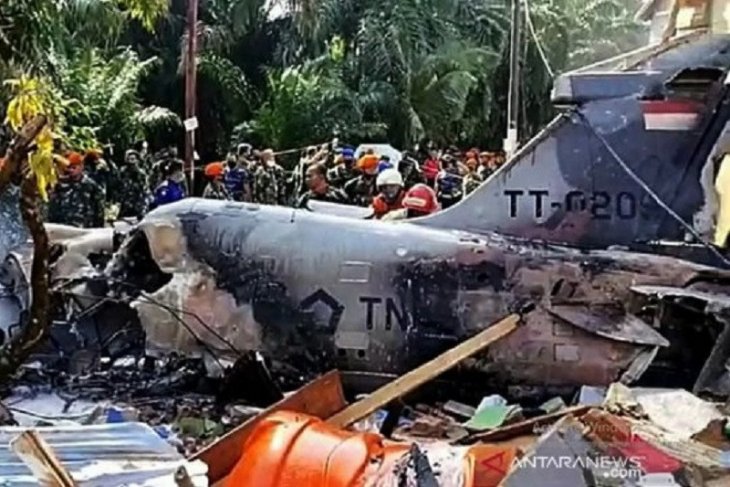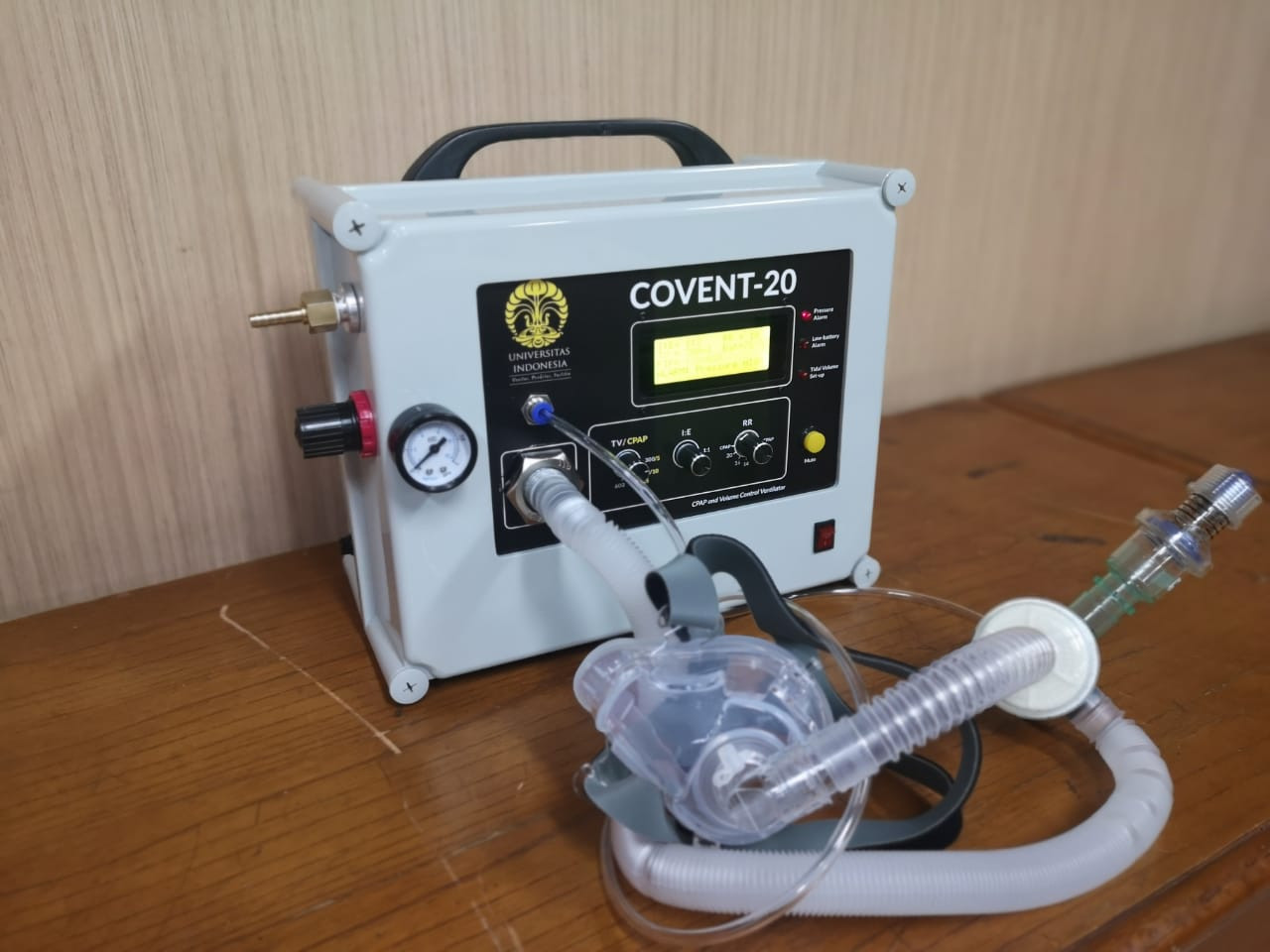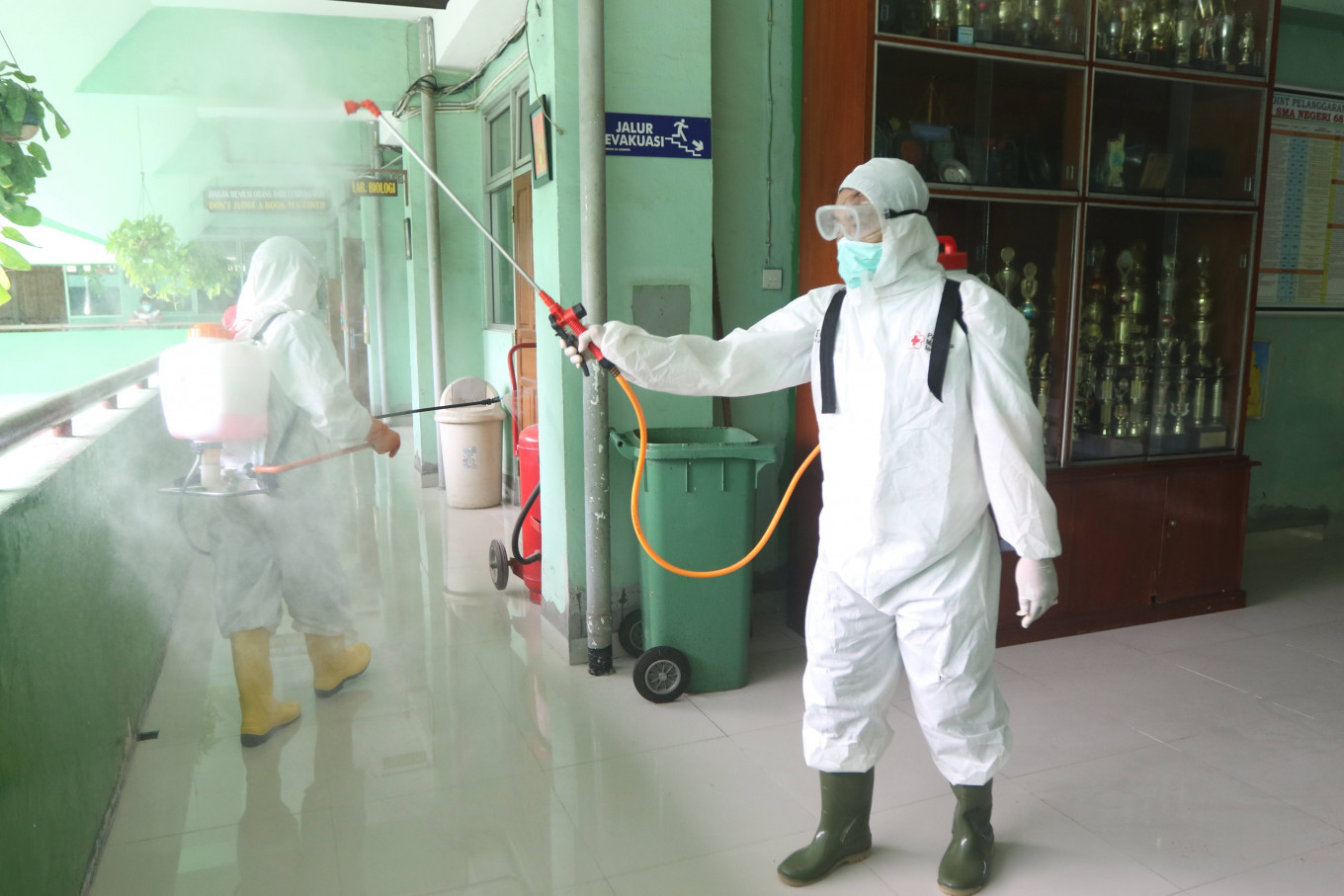Live Streaming
Program Highlight
Company Profile
June
Hawk Aircraft Crashed Post Training Exercise: TNI AU Commander
Written by Ani Hasanah
A Hawk 0209 TT fighter aircraft crashed in a residential area in Siak Hulu Sub-district, Kampar District, Riau Province on Monday morning (June 15, 2020). (ANTARA/HO-TNI AU)
A Hawk aircraft of the Indonesian Air Force that crashed into a residential area in Riau Province on Monday had just completed a combat training mission in Siabu, said TNI AU Commander Marshal Fadjar Prasetyo.
The Hawk 0209 TT fighter aircraft crashed in Siak Hulu Sub-district, Kampar District, Riau Province, after reportedly developing engine trouble.
Providing details of the crash, Prasetyo said three fighter pilots flew their aircrafts to a military training area in Siabu at 7 a.m. on Monday morning, and one of them crashed an hour later while returning to the Roesmin Nurjadin air base in Pekanbaru.
"Three of them (fighter pilots) finished a shooting training, and were returning (to the air base) in order, starting from number 1, 2, and 3. The last one (aircraft) crashed," he informed.
Right before the accident, First Lieutenant Aprianto Ismail, who was piloting the aircraft alone, reported he had encountered a problem: the indicator lamp was on, which pointed to engine trouble, according to Prasetyo.
The pilot also reported hearing an explosion which resulted in the British-make aircraft losing power and crashing to the ground.
The crash site was located two kilometers away from the military base, and the aircraft was at a height of just 500 feet when it crashed into houses, Prasetyo added.
However, no casualties have been reported as the houses were empty. The pilot is in a good condition since he "decided to eject himself using the ejection seat”, he continued.
The debris of the aircraft remains at the crash site, while a crane truck placed there for evacuation has returned.
“The evacuation process may begin in several days, as we need to conduct a further investigation first," Prasetyo informed. (ANTARA)
June
UI-Developed Ventilators Ready for Hospitals after Passing Clinical Trials
Written by Ani Hasanah
A ventilator developed by the University Indonesia (UI), dubbed COVENT-20, has passed clinical trials and is ready for distribution to hospitals, the university announced on Tuesday. (Courtesy of the University of Indonesia)
A ventilator developed by the University Indonesia (UI) has passed clinical trials and is ready for distribution to hospitals, the university announced on Tuesday. In a statement on Tuesday, UI spokesperson Amelita Lusia said a joint team from UI’s School of Medicine and School of Engineering was in the process of producing 200 of the ventilators, dubbed COVENT-20, to be distributed to a number of COVID-19 hospitals and emergency hospitals. The device has two ventilation modes - Continuous Positive Airway Pressure (CPAP) and Continuous Mandatory Ventilation (CMV) - both of which have undergone clinical trials on humans in the past few weeks. (Jakpost)
June
Indonesian Schools not Ready for ‘New Normal’: Survey
Written by Ani Hasanah
More than half of schools across the country say they are not ready to resume face-to-face learning in the so-called “new normal” period due to a lack of infrastructure and funds to do so, a recent survey by the Federation of Indonesian Teachers Associations (FSGI) has revealed. The survey was conducted earlier this month, involving at least 1,656 respondents comprising teachers, principals and school management in 245 cities and regencies in 34 provinces. The Education and Culture Ministry announced the phased reopening of schools located in COVID-19 green zones starting July. The FSGI’s survey found around 89 percent of respondents agreed that a prerequisite to reopening schools during the outbreak was having good health protocols, and that it was therefore important to ensure the school infrastructure was ready to support the new normal situation. FSGI deputy secretary-general Satriwan Salim said on Tuesday, that schools, especially private ones, claimed not to have a big enough budget to provide supporting infrastructure to restart the learning process amid the new normal. (Jakpost)
Higher Education Shifted Dramatically and Should Be More Affordable in the COVID-19 Era
Written by Ani HasanahJakarta (VOI News) - Indonesia’s higher education has new challenges and should be more affordable, as the business model has shifted dramatically due to the COVID-19 outbreak. CEO of Government School and Public Policy (SGPP) Ony A Jamhari told Voice of Indonesia on Monday Juni 15, that the biggest challenge for this year will be recruiting students. Many potential students, local and international might not apply or postpone their study, as they will focus on their work. At the same time SGPP will shift the teaching learning activities into online programs.
“Yes, more universities in Indonesia are offering online classes/courses. Definitely it will change the business model, from conventional school to the new online school. I think education will be getting cheaper in the future, and there will be more people who can get access to education,” said Onny A. Jamhari.
Jamhari said at least in the next two year they will anticipate this uncertainty period.
“We have to prepare ourselves, not only the human capital that can engage with the technology, but also capital that is “money” that should be allocated wisely in the digital technology. In the next two years, those who can adapt will survive,” he added.
SGPP is the first Indonesian public policy school to offer a full time master’s program in English, inline with the practice and standard of international policy education. Founded in 2012, the students come from various backgrounds such as government officers, public sector, private sector, national and international NGO. (VOI/Antin/Edt.N)



